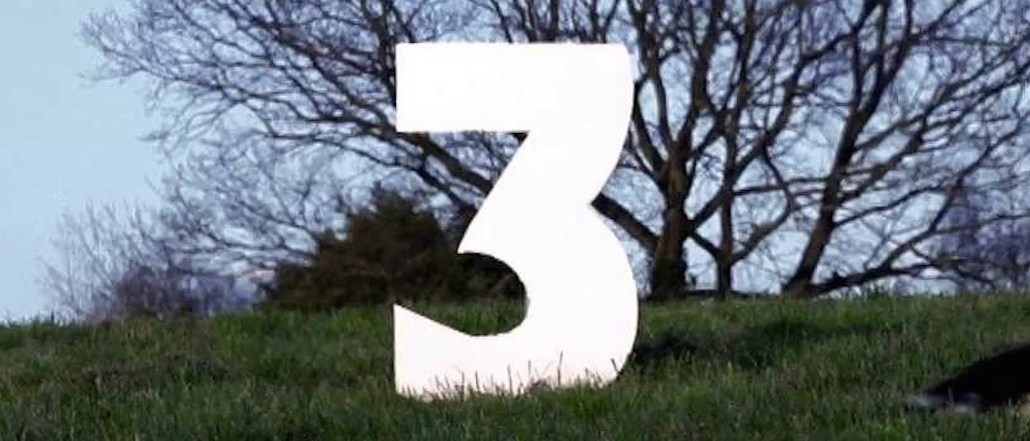Save 50% on a 3-month Digiday+ membership. Ends Dec 5.
Eight months after axing TV channel, BBC Three sees programming bright spots

In February, the BBC made the decision to take youth-focused channel BBC Three off TV and online only. The move was a cost-cutting measure saving the corporation £30 million ($44 million) in TV transmission costs. BBC Three’s budget was also cut in half to £30 million.
There have been a few bright spots: Long-form TV drama “Thirteen” was the most requested show on BBC iPlayer, the broadcaster’s online video hub of content from all BBC channels, with 3.3 million requests to view so far this year. In August, one-off drama “Murdered by My Father” had racked up 1.8 million requests, with the third series of sitcom “Cuckoo” pulling in 1.5 million. Since BBC Three moved online, its shows average more than 11 percent of iPlayer requests. Before the move, this was 4.5 percent, although it fluctuates depending on which content it premiers on iPlayer versus on social platforms.
Critics are quick to judge BBC Three by the same linear TV metrics, even though the brand is now trying its hand at video, written editorial content and podcasts. Making any kind of comparison between TV viewers and online viewers is going to be flawed: Audience measurement systems between TV and online are apples and pears. On iPlayer, the BBC measures requests by clicking to play, rather than whether the viewer watched it for 10 seconds or 10 minutes.
“Expectations should be set reasonably low,” said Tom Harrington, broadcasting analyst at Enders Analysis. “They are downsizing. When you downsize, you don’t have explosive success.”
BBC content available on iPlayer is, broadly speaking, only available for 30 days. On BBC Three, a lot of the content is available for over a year, which also skews the metrics. However, the BBC said that the majority of requests are usually made in the first couple of weeks of a show going online. “Thirteen” has only had an addition of a few hundred thousand requests since it first appeared on iPlayer.
By cutting the cord, BBC Three’s original programming was no longer constrained by running times. “Murdered By My Father” ran for 73 minutes because that is the length the producers wanted it to be.
At the other end of the spectrum, BBC Three is producing short-form series straight for social media on Facebook, Twitter and Snapchat, series like “Amazing Humans” and “Things You Shouldn’t Say To.” In October, a one-minute video from the “Amazing Humans” series about a dancer with a bionic leg gained over 73 million views. It’s also producing social content around the longer-form shows that appear on BBC Three and iPlayer, like off-beat comedy “Josh.”
Ad position: web_incontent_pos1
It’s in the short-form content where the brand should focus its efforts, according to Liz Duff, head of broadcast at Total Media. “The audience it’s after consumes in a contradictory manner, either snacking or binge-viewing. They are two conflicting behaviors, and it’s difficult to compete at both ends of the spectrum,” she said.
In its 10-year lifetime as a TV channel, BBC Three regularly has broadcast reruns of shows like U.K. soap “EastEnders” and U.S comedy “Family Guy,” as well as car show “Top Gear.” While these were popular, the average age of the TV viewer for these shows was over 35, older than BBC Three’s target demo of 16- to 34-year-olds.
Reaching this audience is a known challenge at the best of times. For BBC Three, discovery is trickier still. “It’s this thing of attribution, finding BBC Three content on iPlayer is hard,” said Enders’ Harrington. The interface on the BBC Three site is not that intuitive, something the broadcaster is looking to fix.
This is only exacerbated by the fact that people characterize iPlayer as a catch-up service. It doesn’t attract the same viewing behavior as something like Netflix, where people are browsing. Instead, people head to iPlayer in search of something specific. BBC Three content is at an advantage for being on there for over a year, but it can’t reap the benefits if people don’t know that the content is there. Again, the broadcaster said it’s beginning to see this behavior change.
“Clearly, it does understand younger audiences,” said Duff, pointing out that being in the right places socially, and moving content even further out of iPlayer will bring it closer to audiences. “It’s more important for brands to be building deep authentic relationships. That’s not something that’s reflected in download numbers.”
Ad position: web_incontent_pos2

More in Media

What publishers are wishing for this holiday season: End AI scraping and determine AI-powered audience value
Publishers want a fair, structured, regulated AI environment and they also want to define what the next decade of audience metrics looks like.

Digiday+ Research Subscription Index 2025: Subscription strategies from Bloomberg, The New York Times, Vox and others
Digiday’s third annual Subscription Index examines and measures publishers’ subscription strategies to identify common approaches and key tactics among Bloomberg, The New York Times, Vox and others.

From lawsuits to lobbying: How publishers are fighting AI
We may be closing out 2025, but publishers aren’t retreating from the battle of AI search — some are escalating it, and they expect the fight to stretch deep into 2026.
Ad position: web_bfu
